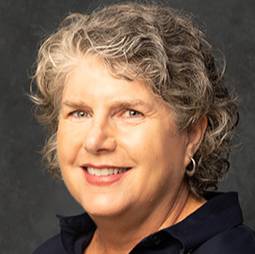Department of History
- SC.edu
- Study
- Colleges and Schools
- Arts and Sciences
- Department of History
- Our People
- Directory
- Jessica Elfenbein
Directory
Jessica Elfenbein
| Title: | Professor |
| Department: | History McCausland College of Arts and Sciences |
| Email: | jessicae@mailbox.sc.edu |
| Phone: | 803-777-3282 |
| Office: | Gambrell Hall, Room 243 |
| Resources: | Curriculum Vitae [pdf] |

Education
- M.A., Ph.D. University of Delaware (Hagley Program)
- M.A. George Washington University
- A.B. Barnard College, Columbia University
Bio
Knowing that history has the power to be a productive tool of community building moved me to become an historian and has informed and enriched my work in the fields of American urban and public history. My career has been a satisfying combination of teaching, scholarship, and administration. My current research has moved me into environmental and business history through the multi-faceted Wood Basket of the World project. Previously, I directed Baltimore ’68: Riots and Rebirth, which won highest program honors from the National Council on Public History and the American Association of State and Local Historians.
I have spent much of my career as an academic leader. From 2019-2025, I served as Chair of USC’s History Department where I had the honor of championing the fascinating work of our incredible faculty and students. I also served as Senior Associate Dean of USC’s Graduate School from 2012-2016, an Academic Leadership Development Program Fellow for the Southeastern Conference in 2015-16, and an American Council on Education Fellow in 2009-10.
Current Activities
Research for a National Park Service Historic Resource Study of Congaree National Park led to my current project on the history of lumber, wood products and forest conservation in South Carolina. By focusing on the post-Reconstruction arrival of Chicago lumbermen who made their way to South Carolina, acquired cheap wooded land and began the Santee River Cypress Lumber Company (SRCLC) which became one of the South’s largest lumber enterprises, I have begun telling the rich story of land disposition, the development of new industries, and the creation of industrial communities. SRCLC built corporate headquarters out of the swamp in Ferguson, SC, which thrived as a company town for a quarter century before being abandoned and then drowned as part of Santee-Cooper, a New Deal rural electrification and public works project. For 75 years, Ferguson has been submerged along the shore of Lake Marion, South Carolina’s largest lake. Still, its story from 1890-1940 sheds unexpected light on key events in American and Southern history.
Meanwhile, the sale of SRCLC timber rights beginning in 1920 contributed to Sumter, SC’s unexpected rise as a major center for the manufacture of wood furniture, barrels, caskets, and other products for a century by a workforce that was interracial and, sometimes, unionized. Located near old growth hardwood and connected via railroad to markets across the United States, in the post-boll weevil years, Sumter played an outsized role in the mass production of wood furniture and taste-making which continued throughout the 20th century.
I lead a team of USC faculty, students, and staff working with community partners on a range of Wood Basket of the World-related initiatives, including a travelling and virtual exhibition, community deep mapping, oral histories, archival digitization, material culture, historical markers, a new anthology, public conferences, and much more. Topics have included the rise and fall of company towns, the Great Migration, the hand of the state in the modernization of rural places, the human and ecological costs of extractive industries, trends in furniture design, changes in packaging, and issues of environmental justice. Our work has been covered by C-SPAN and public radio, and supported by local and national funders including the South Carolina Humanities Council, the National Park Service and the National Endowment for the Humanities, among others.
Grad Fields
I am delighted to work with History M.A. and Ph.D. students in the following fields:
- History of economic development, business and philanthropy
- Urban and Environmental History
- U.S. History since 1789
- Public History